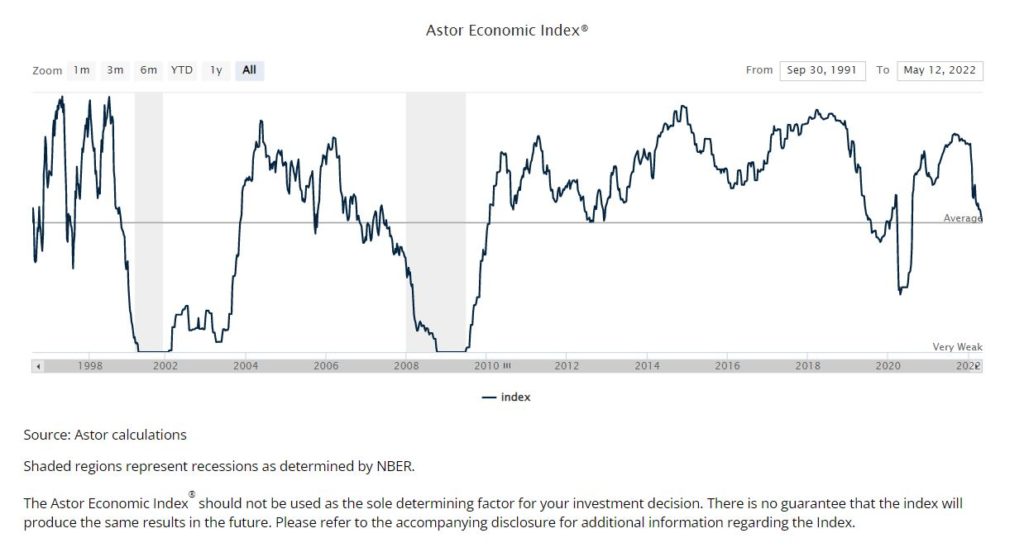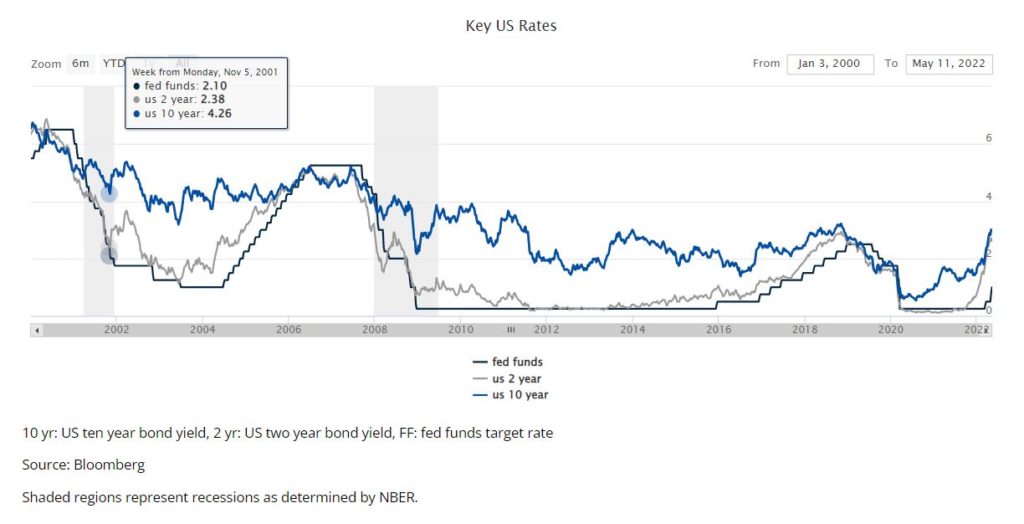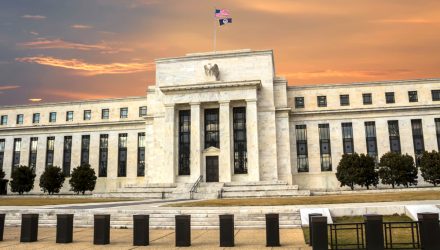By Rob Stein,
The markets have had a challenging time the past few weeks, quickly retracing back to the levels of a year ago.
Perspective is always important, but the Fed’s perspective is essential! As I said at the beginning of the year, it’s all about the Fed and how they navigate interest rates. The Fed got it wrong when they called the inflation spike “transitory”. They confessed this in the December minutes, but no one understood that this meant they would raise rates and not waiver until real rates were no longer negative.
To do that, rates will need to go much higher than most economists think, and the markets are now digesting that. As inflation becomes persistent, not transitory, uncertainty becomes greater and volatility increases. This condition is unlikely to end anytime soon, and we’re prepared for that.

The Astor Economic Index® (AEI) has been slowly declining since the beginning of the year, and we have steadily reduced exposure to the current level of ~50% stocks in our Dynamic Allocation portfolio.
The AEI is designed to review data points against their own range, which enables us to pick up changes in economic momentum even when raw numbers like payrolls continue to increase by over 400K per month.

The current rate hikes have drained some of the liquidity that was used to buy stocks. Investors are no longer getting paid to buy stocks, as the cost of overnight money is higher than the yield on stocks.
Leverage on derivates, futures and options cost more this year, making it more expensive and riskier to hold when markets decline, and thus traders under these conditions are forced to sell.
For now, reducing the exposure to roughly 50% in our Dynamic Allocation portfolio makes sense. If the Fed engineers a “soft landing”, we seek to ride the volatility out with lower beta and increase exposure when we see the all clear. Conversely, if they mess it up and create a recession, we’re a few mouse clicks away from getting defensive.
From where I sit, an economy that is adding 400K jobs a month (even if that is below trend) and that has corporate profits at record levels, is unlikely to fall into a recession immediately (read: a bounce should happen at some point).
However… in my opinion, given the combined and misunderstood impacts of the stimulus program and super hyperinflation, I am concerned not just that the Fed is behind the curve, but worse that many investors and even some members of the Federal Reserve don’t even see a curve ahead. That is my biggest concern (read: a recession is coming)!
Stay tuned….

